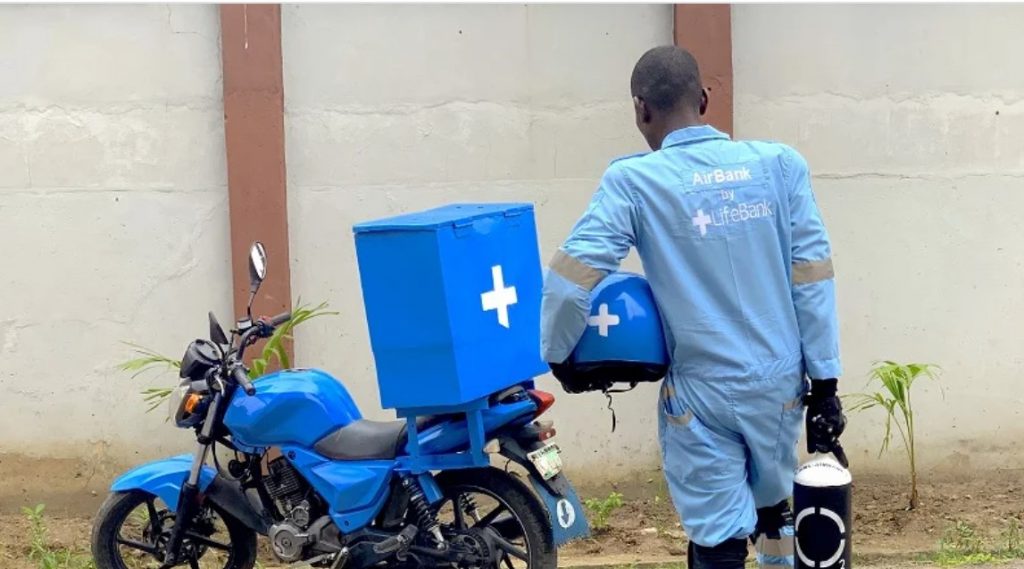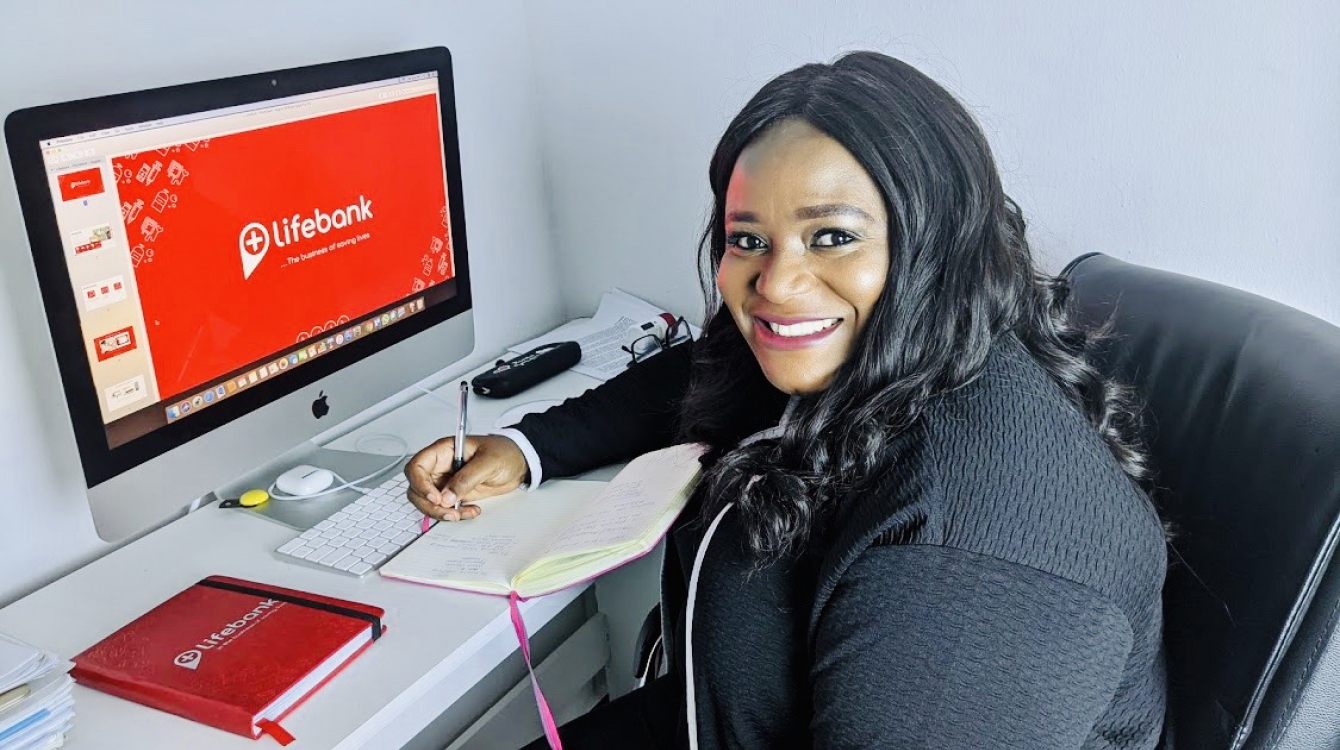Revolutionizing Healthcare Logistics in Africa: The Story of Temie Giwa-Tubosun

Personality Focus of the Month: Temie Giwa-Tubosun
Field: Healthcare and Social Impact
Why Feature Her: Temie has revolutionized access to essential medical supplies in Africa, saving countless lives.
Contribution: Founded LifeBank, an innovative platform that ensures the efficient delivery of blood and other critical medical supplies to hospitals across Nigeria.
Meet Temie Giwa-Tubosun. A Dream Born Out of Necessity!
Imagine a young woman in Nigeria, watching lives slip away simply because blood or critical medical supplies couldn’t get to hospitals in time. For Temie Giwa-Tubosun, this wasn’t just a heartbreaking reality—it was a call to action. From humble beginnings, she has grown into a globally recognized healthcare innovator, bridging the gap between life-saving resources and the people who need them most.
What keeps me going is that someone is about to die, and they don’t die.
This is the story of how a woman with a vision, armed with nothing but passion and a determination to make a difference, built LifeBank, a company that has revolutionized healthcare logistics in Africa and inspired change around the world.
The Early Years: Growing Up in a System That Needed Change
Temie Giwa-Tubosun was born in 1985 in Ila Orangun, Nigeria. Her upbringing was deeply influenced by the socio-economic realities of her environment. Nigeria, like many developing countries, faced significant challenges in healthcare delivery, with inefficiencies often costing lives. Temie was keenly aware of these struggles but likely never imagined she would someday tackle them head-on.
Temie’s journey took her across borders, providing her with a broader perspective. She spent years in the United States, studying and observing how healthcare systems operated in more developed nations. It was during this time that her desire to address healthcare disparities in her home country began to crystallize.
A Life-Changing Moment: Inspiration Strikes
The moment that changed everything for Temie came during a pregnancy-related health scare in 2009. She was living in Minnesota and had access to the best healthcare facilities. The experience left her deeply grateful—but it also filled her with an urgent sense of responsibility.
What if she had been in Nigeria? Would she have received the same level of care? Would she have survived?
These questions haunted her. She realised that millions of women in Nigeria didn’t have the privilege of safe deliveries because of a broken system. Blood shortages alone accounted for thousands of maternal deaths each year. For Temie, this wasn’t just a statistic; it was a personal mission.
The Birth of LifeBank: From Idea to Reality
In 2016, after years of research and planning, Temie founded LifeBank. The idea was simple blood, to hospitals in need.
LifeBank operates through a digital platform that connects blood banks, hospitals, and medical suppliers. Using a combination of data analytics, GPS technology, and a fleet of delivery bikes and boats, LifeBank ensures that no time is wasted when lives are on the line.
But starting LifeBank was no easy feat. Temie began with just a small team and a big dream. There were financial constraints, logistical challenges, and the ever-present skepticism of a society not yet accustomed to tech-driven healthcare solutions.
Overcoming Challenges: The Roadblocks to Success
Building LifeBank required grit and resilience. Temie faced numerous hurdles along the way:
- Funding: Convincing investors to back a healthcare logistics startup in Nigeria wasn’t easy. Many were hesitant to invest in a sector riddled with systemic issues.
- Infrastructure: Nigeria’s lack of reliable infrastructure—roads, electricity, and digital connectivity—posed significant challenges to LifeBank’s operations.
- Awareness: Hospitals and blood banks needed to trust the platform, but initial adoption was slow due to a lack of awareness.
Temie tackled these issues head-on, securing funding through grants and partnerships and tirelessly advocating for the life-saving potential of her solution.
Scaling New Heights: From Nigeria to the World
Despite the challenges, LifeBank has achieved incredible milestones:
- 20,000+ Deliveries: The company has facilitated the delivery of over 20,000 units of blood and medical supplies, directly saving thousands of lives.
- Expanded Reach: LifeBank is now operational in Kenya and Ethiopia, demonstrating the scalability of Temie’s model across Africa.
- Recognized Globally: Temie has been featured by CNN, the BBC, and other major outlets, earning accolades for her innovative approach to healthcare logistics.

But Temie isn’t stopping there. She envisions a future where LifeBank becomes a global force in healthcare delivery, ensuring that no one, regardless of their location, has to die from preventable causes.
Lessons from Temie’s Journey: What We Can Learn
Temie Giwa-Tubosun’s story is filled with powerful lessons for anyone striving to make a difference:
Empathy is Key: Temie’s ability to connect with the human side of healthcare has been central to her success.
Start Small, Dream Big: LifeBank began as a small startup, but Temie’s unwavering vision has turned it into a continental leader.
Adapt and Innovate: By leveraging technology and local solutions, Temie has created a model that works within Africa’s unique context.
How You Can Help
Temie’s journey is far from over, and there are countless ways to support her mission:
- Spread Awareness: Share her story to inspire others and raise awareness about the critical need for efficient healthcare logistics.
- Support LifeBank: Donate, partner, or volunteer with LifeBank to help expand its reach.
- Advocate for Change: Push for investments in healthcare infrastructure and innovation in your community.
Temie’s Legacy: A Vision for the Future
Temie Giwa-Tubosun is more than an entrepreneur; she’s a changemaker. Her work with LifeBank is a testament to the power of determination, innovation, and a deep-seated belief in humanity’s potential to do better.
Her story reminds us that no obstacle is insurmountable when lives are at stake. From humble beginnings to global recognition, Temie has shown us what’s possible when one person dares to dream and works relentlessly to make that dream a reality.
Temie’s journey isn’t just about saving lives; it’s about inspiring a generation to think bigger, act bolder, and never underestimate the power of one person to change the world.
Frequently Asked Questions (FAQ)
1. What motivated Temie Giwa-Tubosun to establish LifeBank?
Temie Giwa-Tubosun’s motivation to create LifeBank stemmed from a traumatic childbirth experience in the U.S., where access to healthcare saved her life. This event highlighted the stark disparities faced by women in Nigeria, where postpartum hemorrhage remains a leading cause of maternal deaths due to inadequate blood supplies. Determined to change this, Temie founded LifeBank to ensure timely access to critical medical resources and save lives.
2. How does LifeBank utilize technology to enhance healthcare in Africa?
LifeBank employs cutting-edge technology to transform healthcare in Africa by tackling critical supply chain issues like blood shortages. Using data analytics, artificial intelligence (AI), and smart logistics, it connects hospitals with blood banks and ensures rapid delivery of essential medical products.
Hospitals use LifeBank’s mobile app to request supplies, while a dedicated donor app encourages voluntary blood donations. Additionally, LifeBank’s innovative blockchain-powered solution, SmartBag, guarantees the integrity and traceability of blood supply information. These advancements help save lives and improve healthcare accessibility across the continent.
3. How does LifeBank utilize technology to enhance healthcare in Africa?
LifeBank employs cutting-edge technology to transform healthcare in Africa by tackling critical supply chain issues like blood shortages. Using data analytics, artificial intelligence (AI), and smart logistics, it connects hospitals with blood banks and ensures rapid delivery of essential medical products.
Hospitals use LifeBank’s mobile app to request supplies, while a dedicated donor app encourages voluntary blood donations. Additionally, LifeBank’s innovative blockchain-powered solution, SmartBag, guarantees the integrity and traceability of blood supply information. These advancements help save lives and improve healthcare accessibility across the continent.
4. How does LifeBank integrate AI and blockchain into its distribution system?
LifeBank seamlessly integrates AI and blockchain to optimize the distribution of medical supplies, ensuring efficiency and safety. Their SmartBag technology, powered by blockchain, tracks blood products throughout the supply chain, recording essential details such as collection, screening, and storage. This allows hospitals to access real-time, reliable data by simply scanning the SmartBag, ensuring the integrity and traceability of the blood.
In addition, LifeBank collaborates with benshi.ai to incorporate AI and machine learning for predictive analytics in inventory management. This allows hospitals to make informed, data-driven decisions about their supplies, ensuring that critical resources are available when needed and improving patient outcomes.
5. How has LifeBank’s impact on blood donation rates influenced maternal mortality rates in Nigeria?
LifeBank’s work in increasing blood donation rates has had a significant impact on maternal mortality rates in Nigeria by improving access to safe blood supplies. By delivering over 15,700 units of blood and reducing delivery times from 24 hours to under 45 minutes, LifeBank has addressed critical blood shortages that contribute to the country’s high maternal mortality rate, which is approximately 814 deaths per 100,000 live births.
Through its efforts to promote voluntary blood donations, which currently make up just 10% of Nigeria’s blood supply, LifeBank ensures more women can receive timely blood transfusions during childbirth complications, especially postpartum hemorrhage, a leading cause of maternal deaths. As a result, LifeBank has saved thousands of lives and is playing a crucial role in reducing maternal mortality in Nigeria.



